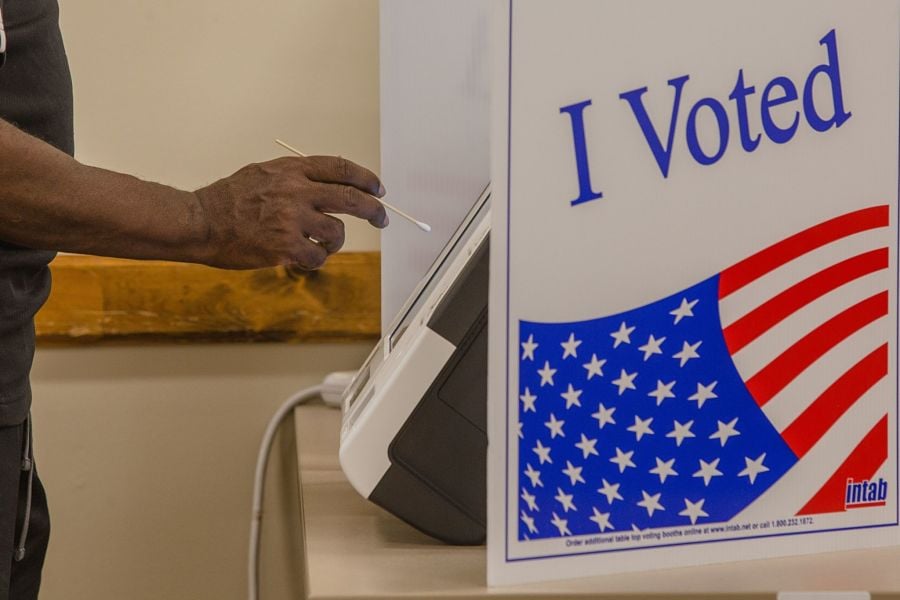

Shareholders have increasingly pushed companies to improve their social and environmental practices over the past few years — but a small and growing contingent of anti-ESG campaigners has also been working against that.
This year, the number of shareholder resolutions asking businesses to undo their work on diversity, equity and inclusion and other issues went up significantly. There have been 79 such proposals in 2023, up from 45 last year — a 76% increase, according to a report Thursday from the Sustainable Investment Institute published by Harvard Law.
Unlike the deluge of anti-ESG legislation and regulations from Republican leaders in numerous states, the shareholder campaigns mostly center on social issues, rather than restrictions on fossil fuels.
The shareholder resolutions also differ from the broader anti-ESG push in having seen no success, with average support in proxy votes of about 2.5%, according to the report. While it appears that big investors have been less supportive this year of pro-ESG resolutions at public companies, they clearly haven't change course entirely to support anti-ESG proposals.
“While ‘regular’ ESG proposals generally offer ideas for how to address various corporate policies — voicing different ideas for new policies, actions or disclosures — the anti-ESG proponents ask companies to stop doing things,” Heidi Welsh, executive director of the Sustainable Investment Institute, wrote in the paper. “Generally speaking, the anti-ESG proponents seek to roll back the clock to a mid-20th century world where businesses operated with little consideration of their social and environmental impacts.”
About two-thirds of the anti-ESG proposals this year focus on diversity, while a quarter are about political involvement and another 10% are on environmental issues, Welsh wrote. “All contend that a liberal agenda from investors and companies will damage the economy and American culture, asserting that ESG matters have no bearing on the bottom line.”
Over the past two years, there has been a greater number of shareholder resolutions overall, mostly focused on ESG, after the Securities and Exchange Commission changed its stance on allowing companies to exclude proposals from their ballots.
One strategy among some of the anti-ESG filers has been to mostly copy the language in ideologically opposed resolutions made by sustainable investors, with slight tweaks that change the meaning, the report noted.
Many of the anti-ESG proposals brought this year were from conservative think tank the National Center on Public Policy Research, which has so far filed 42 resolutions, according to the Sustainable Investment Institute. That group’s Free Enterprise Project filed racial- and gender-themed proposals at BlackRock, McDonald's, Home Depot, Walmart, Netflix, Alphabet and others.
“Inspired by requests to conduct racial justice audits which have earned substantial support including eight majorities in 2022, NCPPR filed mirror-image proposals asking about the risks of anti-racism assessments and programs,” Welsh wrote.
Another conservative group, the National Legal and Policy Center, has filed 18 resolutions, a dozen of which are focused on economic relations with China, according to the report. Its proposals have targeted Apple, Bank of America, Berkshire Hathaway, Boeing, JPMorgan Chase, Coca-Cola, Disney, General Motors, Goldman Sachs and McDonald’s.
Some funds have also been active this year in filing anti-ESG proposals. Among those is Christian ETF shop Inspire Investing, which filed and then withdrew a resolution at M&T Bank over the bank’s anti-discrimination policies. Another, the American Conservative Values ETF, has also been active, according to the report.
Anti-ESG proposals often try to make the case that sustainable or socially responsible policies are bad for companies’ bottom lines, although “a lot of the time, they just sound like rants,” said Rick Alexander, CEO of The Shareholder Commons.
That notion “is just wrong,” Alexander said. “One of the most valuable things about ESG proposals, if they are successful, is that they stop companies from externalizing a lot of the costs.”
Academic research has often found links between high levels of inequality and decreases in economic growth, he noted.
The proposals critical of diversity practices “do not at all seem focused on the things that will grow the economy over the long run,” Alexander said.

Rajesh Markan earlier this year pleaded guilty to one count of criminal fraud related to his sale of fake investments to 10 clients totaling $2.9 million.

From building trust to steering through emotions and responding to client challenges, new advisors need human skills to shape the future of the advice industry.

"The outcome is correct, but it's disappointing that FINRA had ample opportunity to investigate the merits of clients' allegations in these claims, including the testimony in the three investor arbitrations with hearings," Jeff Erez, a plaintiff's attorney representing a large portion of the Stifel clients, said.

Chair also praised the passage of stablecoin legislation this week.

Maridea Wealth Management's deal in Chicago, Illinois is its first after securing a strategic investment in April.
Orion's Tom Wilson on delivering coordinated, high-touch service in a world where returns alone no longer set you apart.
Barely a decade old, registered index-linked annuities have quickly surged in popularity, thanks to their unique blend of protection and growth potential—an appealing option for investors looking to chart a steadier course through today's choppy market waters, says Myles Lambert, Brighthouse Financial.
